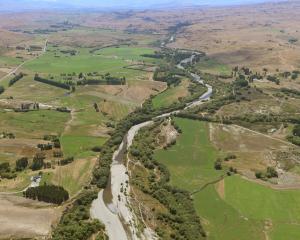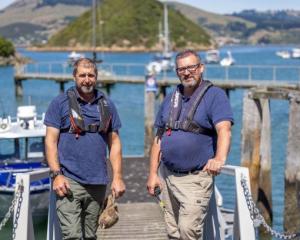Sixteen more staff will be required to ensure the region complies with the new national freshwater standards, the Otago Regional Council says.
The cost would be more than $1million a year.
Councillors this week agreed to the recruitment of 10 new consent staff, four new administration staff and two new business support workers should begin, after staff reported they did not have the resources to process the "significant" number of consent applications expected from the new changes.
Of the consent staff, two would be based in South Otago, two in North Otago, two in Central Otago and four in Dunedin.
The National Environmental Standards for Freshwater 2020 will come into effect next week and include new regulations around stock exclusion, fencing and land-use intensification.
Council regulatory general manager Richard Saunders told councillors at a full council meeting on Wednesday it did not have the resources to enforce the regulations.
"In order to give farmers confidence, we need to be able to process [consent applications] quickly, and there is a legal requirement for us to process those."
Communities were "nervous" about what they needed to do to comply and the council needed to be able to help, he said.
There were about 3345 farms in Otago.
Councillors praised council staff for planning to put new staff into the regions in order to work with the landowners directly, but deputy chairman Cr Michael Laws raised questions about costs.
Chief executive Sarah Gardner said the salary for the extra staff was between about $56,000 and $80,000 a year.
It was likely to cost the council about $1.2 million, she said.
Cr Michael Deaker wanted to know how staff planned to recruit that many people.
Mr Saunders replied that they did not expect to fill all the positions immediately, but they could offer job stability to people during a downturn in the economy due to the impacts of Covid-19.
Chairman Cr Andrew Noone said the timing could not be better, as communities had been "crying out" for direction and leadership from the council.
Cr Kevin Malcolm agreed.
Mr Saunders said yesterday council staff had attended three community and industry meetings this month to help people understand the new rules, and further meetings would be held in the coming weeks.
A set of frequently asked questions from those meetings would also be put on the council’s website.
Environment Southland policy and planning manager Lucy Hicks said it had not yet determined the additional staff it would require, but the number was likely to be significant.
Staff were still considering what the implications of the new rules would be as the council developed its next long-term plan, she said.












